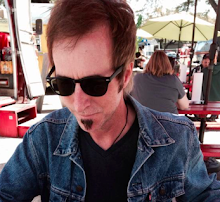Every Sunday night physicians from
all over the globe gather online to participate in a community twitter chat.
They use the hashtag “hcsm”. It stands for healthcare social media. It’s like a
speakeasy’s not so secret password used to connect the stream of tweets between
the medical pros.
Mostly the conversation revolves
around what should be shared, protecting patient confidentiality and which
social platforms work best. But every few weeks the question of money comes up.
Specifically, should doctors get paid for using social media?
The deft communicators work around
the subject with carefully phrased tweets. It’s a little boring. So, I tried to
imagine what the responses might be if the conversation was happening at a
cocktail party and not online. I think it might go a little like this:
The early
adopters like my friend Dr. Howard Luks might say, “I think we have a
responsibility to be part of the conversation. All of us should be participating in some way. Ideally
we should be making the stuff that starts conversation. At a minimum we
should be contributing to the dialog.”
His friend who leads a successful
OBGYN practice might answer, “But there are only so many hours in a
day. Turning my ideas and experiences into tweets and posts takes time
and energy that’s hard to work in between my clinic work, deliveries and family
obligations. I don’t have time to whip up even the fifteen-second videos now
seen on Instagram.”
“Oh, you two” the communications
person from the office noses in to say “that
kind of work is just part of maintaining a professional reputation.
The marketplace belongs to whoever finds the time or resource to translate what
they know and share it with others.”
Look, I
believe that some providers should be paid to participate
professionally. Maybe the big health systems
and larger practices should dedicate staff to sharing, curating, talking and
making content for social media. It would be more than a public relations
move. They’d be able to share their expertise in such a way so as to become a
sort resource for the smaller practices, patients and family members of those
with chronic health concerns.
Sharing information that is helpful to others via social media and providing hands-on
patient care should not be seen as mutually exclusive, but rather as complementary.
And so as my imaginary cocktail
party winds down one physician might say to another, “Hey Doc, only you know
whether or not a public presence is the best use of your time but people value our
voice and wisdom. And whether or not there’s a billing code for it, until
we can get paid, I say let’s pay it forward.” And the other would reply, ”Let’s
do it."
Want to talk about it? Find me www.twitter.com/timbigfish
